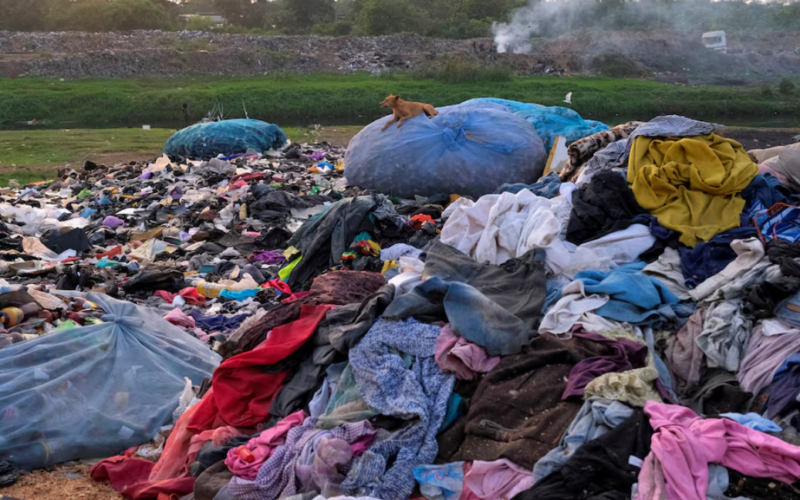In a landmark move aimed at addressing the environmental impacts of fast fashion, France’s lower house, the National Assembly, has voted to impose a surcharge on clothing items to deter overconsumption and reduce waste. The measure, part of a broader effort to promote sustainability in the fashion industry, seeks to curb the “excesses” associated with fast fashion and encourage more responsible consumption habits among consumers.
The surcharge, which is set to be implemented in the coming months, will apply to garments that are deemed to be produced in a manner that is detrimental to the environment. This includes items that are made from non-recycled materials, produced using harmful chemicals, or manufactured in ways that contribute to pollution and waste. The exact amount of the surcharge has yet to be determined, but it is expected to vary depending on the environmental impact of the garment in question.
The move comes amid growing concerns about the environmental impact of the fashion industry, particularly fast fashion, which is characterized by the rapid production of inexpensive clothing that is often designed to be worn for only a short period of time before being discarded. This model of production has been criticized for its contribution to climate change, water pollution, and waste generation, as well as its exploitation of labor in some parts of the world.
By imposing a surcharge on environmentally harmful clothing items, France aims to incentivize fashion companies to adopt more sustainable practices, such as using recycled materials, reducing waste, and improving working conditions in their supply chains. The measure is part of a broader effort by the French government to promote sustainability in the fashion industry, including initiatives to encourage the recycling and reusing of clothing, and to educate consumers about the environmental impact of their purchasing decisions.
The move has been welcomed by environmental advocates, who see it as a step in the right direction towards a more sustainable fashion industry. However, some critics argue that the surcharge may disproportionately affect low-income consumers, who may not be able to afford more expensive, environmentally friendly clothing. Others argue that more comprehensive measures, such as regulations on the use of harmful chemicals and the promotion of circular fashion, are needed to truly address the environmental impact of the fashion industry.
Despite these concerns, France’s decision to impose a surcharge on fast fashion represents a significant milestone in the global effort to promote sustainability in the fashion industry. It sends a clear signal to fashion companies that they must take responsibility for the environmental impact of their products, and it sets a precedent for other countries to follow suit. As the fashion industry continues to grapple with its environmental footprint, measures like these are likely to become increasingly important in driving meaningful change towards a more sustainable future.








